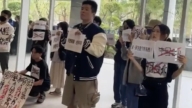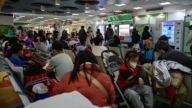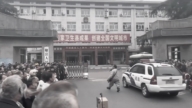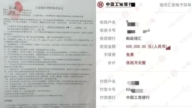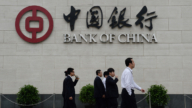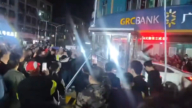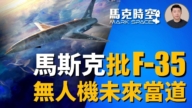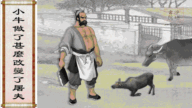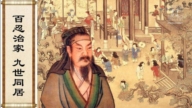【新唐人2011年11月26日訊】最近,中共各省領導層正在進行密集調整。中共喉舌央視臺臺長也列入了調整的行列。原《光明日報》總編輯胡佔凡被任命為中央電視臺臺長,免去了原臺長焦利的職務。當局沒有說明人事變動的原因,焦利的去向也沒有公布,一時間引發各種猜測。
中共《新華網》11月24號報導,中共中央決定,任命胡佔凡為中央電視臺臺長,免去原臺長焦利職務,另有任用。
報導除了介紹雙方的簡歷之外,沒有提到任何焦利被免職的原因,也沒有安排焦利的新職位。
記者致電《光明日報》社,接聽電話的工作人員表示,還沒有接到有關通知。中央電視臺臺辦則確認了焦利被免職的消息,但表示,不方便透露具體情況,要採訪需要發函申請。
台灣《中國時報》駐京記者王銘義認為,從目前情況來看,當局沒有具體表態,對焦利是升還是降,還不好下結論。
1953年11月出生的胡佔凡,畢業於北京廣播學院新聞系新聞學專業研究生班。2001年10月,當選中華全國新聞工作者協會第六屆理事會副主席。2010年3月30號調任光明日報社擔任總編輯。
焦利,1955年出生,遼寧大學經濟系畢業。1997年任遼寧省委宣傳部副部長。2008年任中共中央宣傳部副部長。2009年5月擔任中央電視臺臺長。
曾經在新西蘭接待過焦利的新西蘭國會記者團協會會員,記者王寧向記者表示,焦利非常適合在官場,他善於揣摩上級的意圖,也樂意與下級溝通。
新西蘭國會記者團協會會員王寧:「李長春原來是遼寧省委書記,他是李長春常委裏面的,他們經常在一起,屬於共事的關係,李長春屬於班長他是班副這樣的情況 ,他是負責宣傳這一口的,作為政治來講是最重要的。他是為李長春,整個遼寧省委共產黨委員會服務的。」
不過,已經68歲的政治局常委,統管中共宣傳思想、意識形態的李長春,18大後將要下臺已經是定局。而李長春在任期間,中國的新聞自由度、言論自由每況愈下,並越來越緊縮。
原《新華社》記者高瑜觀察,18大前中共中央媒體人員都在緊密的互相調動。
原《新華社》記者高瑜:「六中全會就提出來,所謂要打改革旗號。實際上就是加緊黨對媒體和輿論的控制,對各個媒體都要加強控制,就是最後了吧,它這是維穩的措施,希望不要出事。」
高瑜還指出,中共主要媒體一把手都是由中組部直接任免,並不是民選的。
《中國時報》引述北京一位資深媒體人的話說,當局把胡佔凡調到央視,可能是要收緊新聞尺度。
原《新華社》記者高瑜:「這個是肯定的,他就是不去那邊,也得收緊。因為中央電視臺是影響最大的,你不管人民日報還是新華社它發的東西,有的是對外的,還有點影響,像人民日報沒有人看啊,你就是廢紙一堆啊,但是看電視嘛,大家都要娛樂嘛,現在就是看電視影響比較大,所以它是天天都要下條文的。」
高瑜表示,當局任免領導幹部會選擇最符合中共幹部標準的,宣傳主旋律最有能力的。
胡佔凡在任職《光明日報》總編輯期間,《光明日報》曾發表過《兩種不同性質的民主不可混淆》、《劃清「四個重大界限」:思想政治工作的重要著力點》等抨擊政改的文章。
《兩種不同性質的民主不可混淆》發表在中共總理溫家寶深圳呼籲政治體制改革之後。文章聲稱,如果有人在沒有認清「誰來統治”之前就去討論具體政治(改革)問題的是非,必定是盲人摸象,錯漏百出。
新唐人記者常春、李靜、孫寧採訪報導。
CCP Appoints New CCTV President
Recently, personnel adjustments are being made intensively
among the provincial leadership of Chinese Communist Party (CCP) authorities.
President of China Central Television (CCTV), CCP』s
mouthpiece, was ranked in the list of adjustments.
Former Guangming Daily editor-in-chief, Hu Zhanfan,
was appointed as the new CCTV president, replacing Jiao Li.
The CCP authorities have not given any reason for the changes
nor declared what has been arranged for Jiao Li.
The action has aroused conjecture and guessing.
On November 24, CCP official media Xinhua.org
reported that the CCP Central Committee had
approved the naming of Hu Zhanfan as the
new CCTV president, replacing Jiao Li.
The Xinhua report published the resumes of two people, but
without mentioning the reason for Jiao Li』s dismissal, nor stating Jiao』s new appointment.
Staff at the Guangming Daily, one the CCP’s official
newspapers told the media that
they had not yet received any related notification from
the authorities.
CCTV』s general office confirmed the news to the media,
but said it would not be convenient to disclose specific details,
and a written application was required for approval
before any interview.
Wang Mingyi, a reporter of Taiwan』s China Times,
based in Beijing said that judging from the current situation,
the CCP authorities had made no specific statement
on Jiao Li』s new appointment, so would not be appropriate to jump to conclusions at the moment.
Hu Zhanfan, born in November,1953, graduated from
the Beijing Broadcasting Institute, majoring in journalism.
Hu was elected as vice-chairman of the Sixth Council of
All-China Journalists Association in October, 2001.
On March 30, 2010, Hu Zhanfan was appointed as
Guangming Daily』s editor-in-chief.
Jiao Li, born in 1955, graduated from Liaoning University,
majoring in Economics.
In 1997, Jiao was appointed as Deputy Minister of the
Propaganda Department of CCP Liaoning Provincial Committee.
In 2008, Jiao assumed the position of Deputy Minister of
Propaganda Department of CCP Central Committee.
Jiao was later named as CCTV president in May, 2009.
Wang Ning, Congressional Correspondent for New Zealand,
who received Jiao Li in New Zealand, told NTDTV that Jiao was well adapted to officialdom.
He was good at figuring out his superior』s intentions,
and also willing to communicate with his subordinates.
Wang Ning : " Li Changchun was the former CCP Secretary
of Liaoning. Jiao Li was the standing committee member of CCP Liaoning Provincial Committee.
They were colleagues. Li Changchun was the head, and
Jiao Li was in charge of propaganda, which was the most important role in terms of CCP politics.
That is, Jiao Li worked for Li Changchun and for the entire
Liaoning Provincial CCP Committee. “
However, 68-year-old Li Changchun, Politburo Standing
Committee member of CCP Central Committee,
was the head of CCP propaganda and ideological section.
Li looks certain to step down after the CCP』s 18th congress.
During Li Changchun』s office tenure, China’s press freedom
and freedom of speech were going downhill, and were getting more tightly controlled
According to the observation of Gao Yu, a former reporter
of Xinhua News Agency, personnel adjustments among
the CCP central medias will be intensively made until
the CCP』s 18th congress opens.
Gao Yu: “CCP』s Sixth Plenary Session proposed to
wave the flag on reform.
It was actually to step up the CCP』s control over media
and public opinion, over all media outlets .
This is the measure taken in the final phase,
to maintain stability, in order to avoid social unrest.”
Gao Yu points out that the appointment and removal
of the CCP』s major media heads are made by
the Organization Department of the CCP’s Central Committee, and
not elected by civilians.
The China Times』 article quoted a Beijing-based
veteran media professional as saying that
Hu Zhanfan』s appointment as CCTV president might be a
signal of the CCP』s tightening up on the depth of reporting.
Gao Yu: “They’ll definitely do this. Even if Hu were not
appointed, news reporting would be tightened.
Because TV has the greatest impact, some CCP media such
as the 『China Daily』 is specially designed for overseas, it might have a little bit influence abroad.
However, in China nobody is interested
in reading their 『People』s daily.』
So there are just piles of wasted news papers.
But we all need to watch TV for entertainment
That is, the TV can produce a greater effect on people』s minds.
So now every day the CCP authorities issue instructions. “
Gao Yu revealed that the CCP authorities would select
the person who best meets the criteria for being a CCP cadre,
and has the most capability in promotion of the CCP』s
propaganda theme.
During Hu zhanfan』s tenure of Guangming Daily』s
editor-in-chief, the newspaper published articles that criticized political reform,
such as “Two Different Types of Democracy
Shouldn』t Be Confused", “Four Major Boundaries Separating: Priorities of Political Ideology Work”
The article entitled “Two Different Types of Democracy
Shouldn』t Be Confused" was published after CCP Premier
Wen Jiabao, appealed for political reform in his speech
in Shenzhen.
The article claims that if someone does not identify
“who shall rule the country" before discussing
the right and wrong of specific political (reforms) issues,
he will definitely take the part for the whole and be full of mistakes
NTD reporters Chang Chun, Li Jing and Sun Ning





